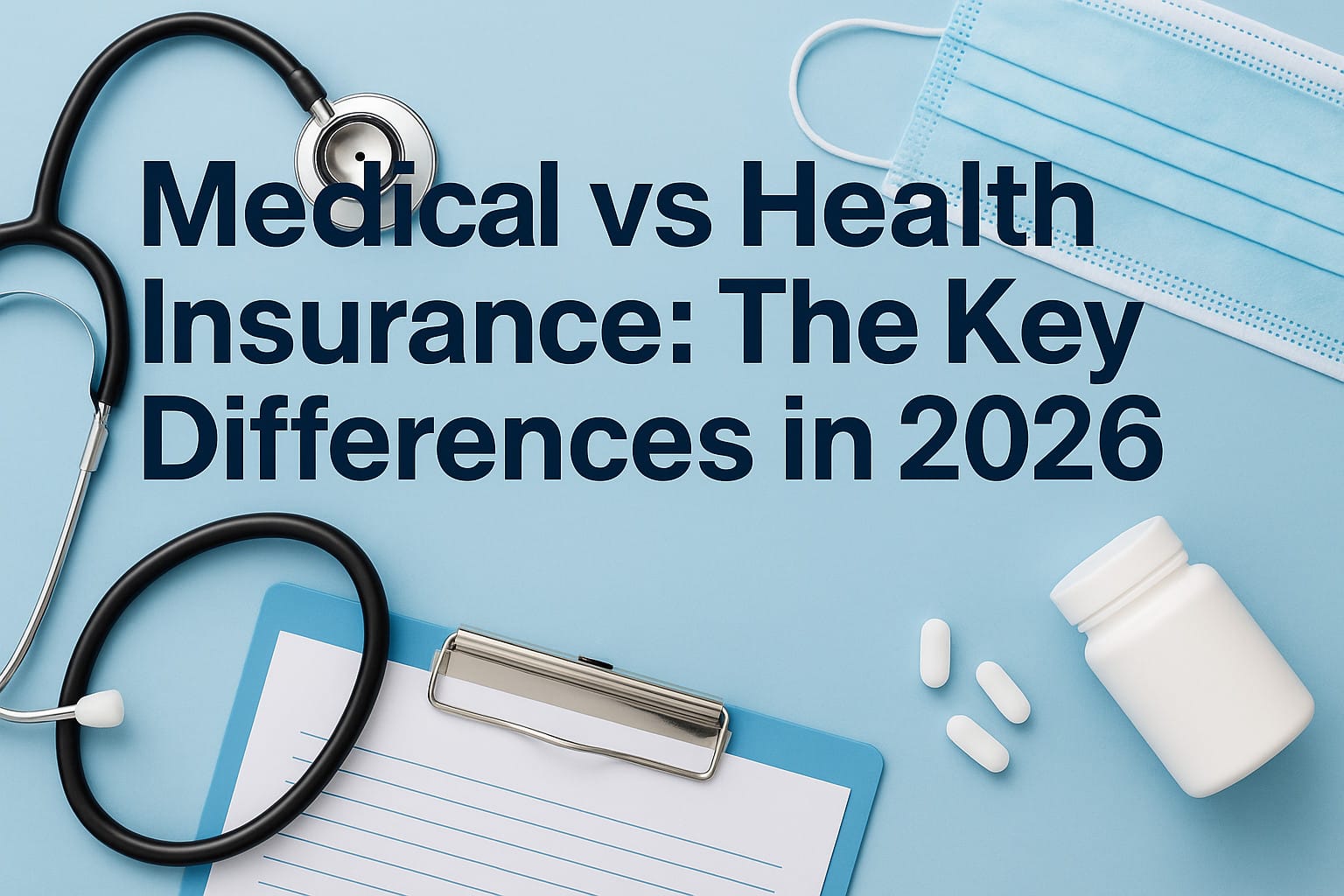Before you get new health insurance, there are some things you should know especially if you already have some health problems. They could be something lasting like diabetes or even something like a broken leg that’s still getting better.
If you already have a health issue, having good health insurance is really necessary. If you don’t have the right coverage, the money you need to pay for your health issue can get really high and make you have money problems.
In this article, we’ll talk about everything you should know when you’re looking for health insurance, and you already have a health problem. We’ll explain what these problems are and help you understand how to fill out the forms and get the right insurance.
What are Pre-existing Conditions?

A pre-existing condition is a medical condition that existed prior to the start date of your health insurance coverage. These conditions can vary widely but are crucial to consider when you’re seeking new or different insurance.
Common examples include diabetes, high blood pressure, and cardiovascular diseases. If you have a chronic condition, it’s likely considered a pre-existing condition under most health insurance policies.
Insurers assess pre-existing conditions to determine the risk associated with offering you a policy. This evaluation may involve a thorough review of your medical history, physical exams, and even blood tests. Your premiums may be higher based on the insurer’s assessment.
Challenges When Buying Health Insurance for Pre-existing Conditions

Higher Premiums and Potential Coverage Limitations
One of the key challenges is the cost. Insurers often charge higher premiums for individuals with pre-existing conditions. In some cases, certain conditions may be excluded from coverage altogether, or a waiting period may be applied.
Waiting Periods and Exclusions
Some policies impose a waiting period, meaning they won’t cover treatments related to your pre-existing condition for a set period after your policy starts. Other plans might exclude pre-existing conditions from coverage entirely.
Limited Options for Comprehensive Coverage
Often, you’ll find that the insurance plans available to you are limited in scope, lacking in benefits like mental health services, insurance for persons with disabilities, or prescription drug coverage, which could be crucial for treating your pre-existing condition.
Impact of the Affordable Care Act (ACA) on Coverage
In countries like the U.S., the Affordable Care Act prohibits insurers from denying coverage or charging more based on pre-existing conditions. However, this isn’t a global standard, and you should check local regulations in your area.
Key Factors to Consider When Purchasing Health Insurance

- Read the policy details really well. When you’re thinking about a policy, make sure it talks about the health problems you already have. See if the doctors and hospitals you like are included, and find out if they’ll pay for the medicines you take.
- Learn about waiting times and rules. Be careful about waiting times or rules that might make you wait before you can get help. These things can stop you from getting care for your health problems when you need it.
- Look at the money you pay and how much the insurance pays. Take your time to compare how much you need to pay and how much the insurance will pay. It’s not just about picking the cheapest one but finding a plan that gives you the best value for the help you need.
- Check how much the insurance will pay each year and in your whole life. See if there are any rules about how much they’ll pay each year or during your whole life. If your treatment costs a lot, hitting this limit might mean you won’t get help when you really need it.
- Think about the doctors you can go to. See if the doctors you like can be used with this insurance. Going to doctors who aren’t on the list might cost more, and the insurance might not even pay for them.
Types of Health Insurance Plans Suitable for Pre-existing Conditions
- Health Maintenance Organization (HMO) Plans: HMO plans often provide comprehensive coverage but limit you to a specific network of doctors. These can be suitable for pre-existing conditions if your required specialists are in-network.
- Preferred Provider Organization (PPO) Plans: PPO plans offer more flexibility in choosing healthcare providers but at a higher cost. If you need specialized care not available in-network in other plans, a PPO might be beneficial.
- Exclusive Provider Organization (EPO) Plans: EPO plans require you to use a specific network of providers for any non-emergency medical services. This could be restrictive if you have a pre-existing condition requiring specialized care.
- Point of Service (POS) Plans: POS plans combine features of HMO and PPO plans, offering some flexibility in choosing healthcare providers but often requiring a referral from a primary care doctor.
- High-Deductible Health Plans (HDHPs) with Health Savings Accounts (HSAs): HDHPs have higher deductibles but lower premiums. They’re often paired with HSAs, which let you set aside money for medical expenses tax-free. This might be useful if you have predictable, ongoing medical costs.
Special Considerations for Individuals with Pre-existing Conditions

COBRA Coverage and Transitioning Between Plans
If you’re transitioning between jobs, COBRA allows you to keep your old employer’s health plan for a limited period. This can be crucial if you have a pre-existing condition and need continuous coverage.
Medicaid and CHIP Programs for Low-income Individuals
Low-income individuals might qualify for Medicaid or the Children’s Health Insurance Program (CHIP), which often covers pre-existing conditions.
State and Federal High-risk Pools
These are special programs that offer coverage to individuals deemed too high-risk for standard insurance plans.
Utilizing Patient Assistance Programs and Prescription Savings Plans
Various non-profit organizations offer financial help for medications and treatments. If you have a pre-existing condition, these programs can be a lifesaver.
The Importance of Full Disclosure and Honesty
When you sign up for insurance, it’s really important to tell them about any health problems you already have. If you don’t, they might say no if you ask for money, or they might stop your insurance.
If you leave out details about your health past, your insurance might not work anymore. This could leave you without coverage, and you might get in trouble with the law.
Insurance companies might need you to see a doctor or look at your health records to check what you said in your application. They could even talk to the doctors you’ve gone to before.
Tips for Effectively Managing Health Insurance with Pre-existing Conditions
- Keep a record of the money you spend on doctor visits and treatments: Writing down all the details can help you when you need to ask for money back. Remember to keep all papers, test results, and papers about your medical care.
- Check often for new information about your insurance: Every year, insurance plans can be different, and that can change what they pay for. Always read any new rules to make sure they still work for you.
- Get help from groups that support patients: There are groups that help patients. They can give you useful things and ideas about how to take care of yourself and understand your rights and choices about insurance.
Conclusion
Having a pre-existing condition can complicate the intricate process of navigating health insurance options. But armed with the right information and a well-thought-out strategy, you can successfully identify a plan that suits your specific healthcare requirements without causing financial strain.
Considering that your health is your most precious asset, the time and effort invested in obtaining the appropriate insurance coverage are unquestionably well-spent. That is why it is quite wise to buy and invest in your insurance as early as your 20s.







